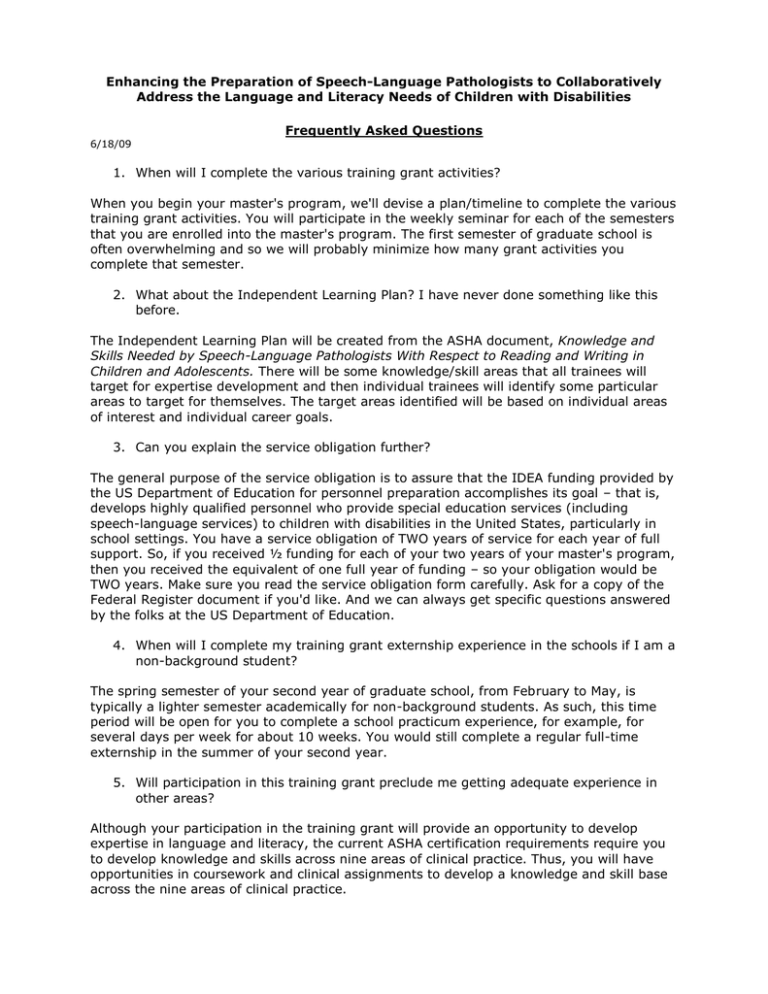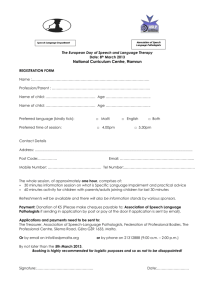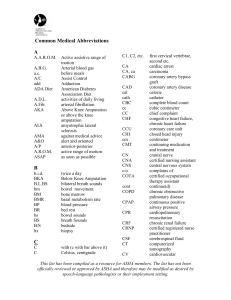Enhancing the Preparation of Speech-Language Pathologists to Collaboratively
advertisement

Enhancing the Preparation of Speech-Language Pathologists to Collaboratively Address the Language and Literacy Needs of Children with Disabilities Frequently Asked Questions 6/18/09 1. When will I complete the various training grant activities? When you begin your master's program, we'll devise a plan/timeline to complete the various training grant activities. You will participate in the weekly seminar for each of the semesters that you are enrolled into the master's program. The first semester of graduate school is often overwhelming and so we will probably minimize how many grant activities you complete that semester. 2. What about the Independent Learning Plan? I have never done something like this before. The Independent Learning Plan will be created from the ASHA document, Knowledge and Skills Needed by Speech-Language Pathologists With Respect to Reading and Writing in Children and Adolescents. There will be some knowledge/skill areas that all trainees will target for expertise development and then individual trainees will identify some particular areas to target for themselves. The target areas identified will be based on individual areas of interest and individual career goals. 3. Can you explain the service obligation further? The general purpose of the service obligation is to assure that the IDEA funding provided by the US Department of Education for personnel preparation accomplishes its goal – that is, develops highly qualified personnel who provide special education services (including speech-language services) to children with disabilities in the United States, particularly in school settings. You have a service obligation of TWO years of service for each year of full support. So, if you received ½ funding for each of your two years of your master's program, then you received the equivalent of one full year of funding – so your obligation would be TWO years. Make sure you read the service obligation form carefully. Ask for a copy of the Federal Register document if you'd like. And we can always get specific questions answered by the folks at the US Department of Education. 4. When will I complete my training grant externship experience in the schools if I am a non-background student? The spring semester of your second year of graduate school, from February to May, is typically a lighter semester academically for non-background students. As such, this time period will be open for you to complete a school practicum experience, for example, for several days per week for about 10 weeks. You would still complete a regular full-time externship in the summer of your second year. 5. Will participation in this training grant preclude me getting adequate experience in other areas? Although your participation in the training grant will provide an opportunity to develop expertise in language and literacy, the current ASHA certification requirements require you to develop knowledge and skills across nine areas of clinical practice. Thus, you will have opportunities in coursework and clinical assignments to develop a knowledge and skill base across the nine areas of clinical practice.



